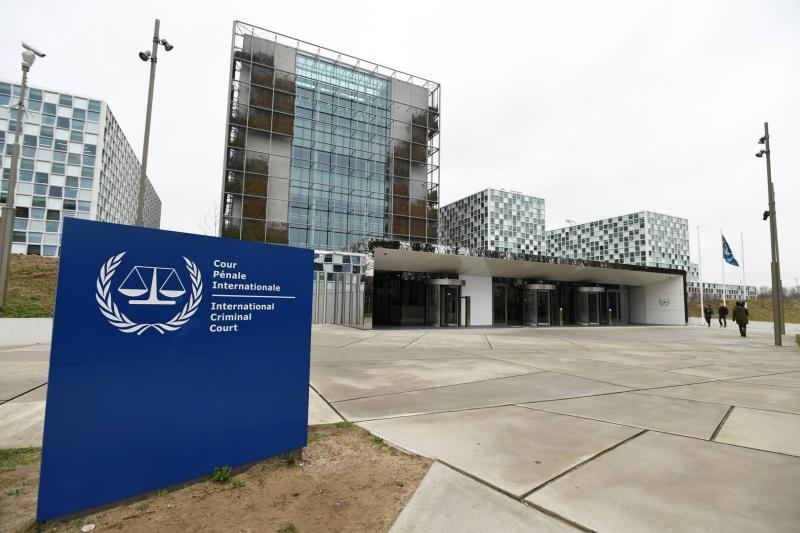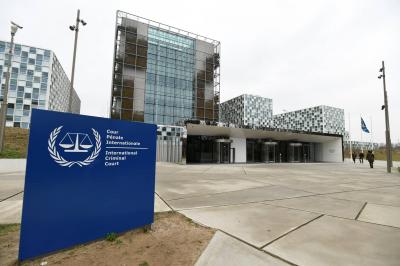In his latest work, the renowned American linguist and leftist writer Noam Chomsky (Who Rules the World?) (2017), the dominance of giant corporate capitalism returns to the American and global scenes. In the latest issue of "New York" magazine for book reviews, there is a revisitation of Chomsky's book and similar writings, highlighting exaggerations that are difficult to be convinced by. However, the real problem today and tomorrow is not in the obstinate companies but in the American system's willingness to relinquish itself or its advantages, if you will.
As soon as the International Criminal Court convened and sentenced Netanyahu, his Defense Minister, and three Hamas leaders for actions that threaten global peace and violate human rights conditions, Americans (more than Israelis!) rushed to condemn the court, discussing in "Congress" the imposition of sanctions against it and condemning its judges! All international system institutions were established after 1945, including the United Nations Charter, the International Criminal Court, the International Court of Justice, and the Human Rights Council. Agencies and treaties all present opportunities and possibilities for establishing a global system of justice, peace, and human rights. Naturally, the Soviet Union was not absent but was present and contributed, along with officials from emerging nations after colonialism.
In any case, the United States has always been and remains the main responsible party for advocating this system, protecting it, and speaking on its behalf. Is it not the city upon a hill, as depicted in the Bible, since the seventeenth century? Despite the European roots of the Enlightenment, the United States appeared as a guardian of this Enlightenment and its largest proponent during the two world wars and afterward. It claimed this moral superiority even after the bombings of Hiroshima and Nagasaki, and during the Korean War in the 1950s and the Vietnam War in the 1960s and 1970s.
The United States did not join the agreements of the International Criminal Court and the International Court of Justice. However, through its European allies, it utilized them in its struggle against the Soviet Union and its allies, as well as against numerous African nations, Serbia, and Central Asia. What we are discussing is the shift that began during Ronald Reagan’s era and continued through the ripples during both Republican and Democratic administrations thereafter, for reasons justified and unjustified. During Trump’s presidency, America withdrew from the Human Rights Council, nearly exited UNESCO, and frequently used its veto power to protect Israel and maintain its occupation of Palestinian land.
Since the 2003 invasion of Iraq, it has become exceedingly difficult to talk about American "soft power," represented by the framework of freedoms in expression, human rights, media, prestigious universities, scientific research institutions, and charitable and humanitarian organizations. America has experienced the McCarthy era against communism and the left, and then the suppression of youth and African American protests due to civil rights and the Vietnam War. However, never before has police repression of students been as severe as it has been this time due to the war on Gaza. Police arrested thousands within university campuses, demonstrating extreme brutality while continuing to disregard freedom of expression and the peaceful nature of the protests.
Undoubtedly, the Jewish issue, particularly in America and Germany, is unique. However, what stands out is the consensus in Congress and the media against students, something that was not even present during the Iraq invasion. The issue is not solely about the Jewish specificity but about the rise of the right and the alignment of liberals with the left or nihilists and anarchists.
Americans seem concerned with regaining Africa after it was flooded with Chinese projects and Russians through "Wagner," while the French have been expelled by the coup leaders. However, they consider their foremost mission to combat terrorism, which cannot be prevented from spreading by the coup leaders’ armies. In the Atlantic and Pacific oceans and the South China Sea, the U.S. is strengthening its military alliances. The peoples of those regions appear perplexed, having experienced both American might and the soft aspects represented by democracy and stability. Yet, on the other hand, they fear Russian aggression and the obscurity of China's intentions behind its Belt and Road Initiative (2013).
The problem is that the liberal and idealistic attractions of the city upon a hill no longer possess the strength and solidity internally to reflect in foreign policies. Nevertheless, the claim of moral superiority over Russia and China has not subsided, while Americans do not showcase soft aspects but military might. Behind soft power, indeed before it, lies military incursions that are evident not only in Europe but also in the Middle East. There is no room for soft power in confrontations. The global system established by the United States is eroding, and before that, its soft power is diminishing!




